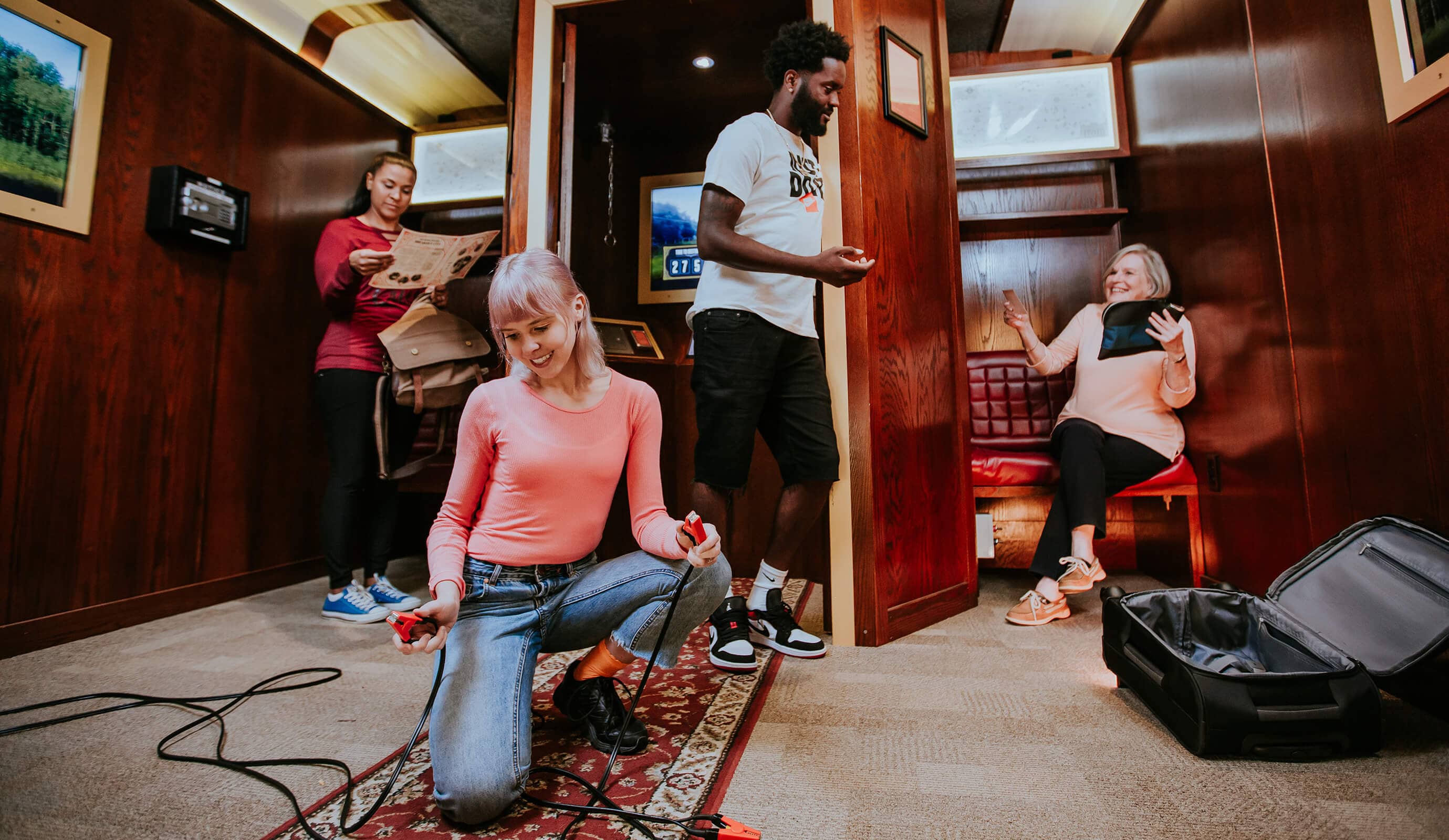Group Tasks at Minneapolis Escape Room-- Perfect for Friends and Family members
Group Tasks at Minneapolis Escape Room-- Perfect for Friends and Family members
Blog Article
Team Approaches: Just How to Team up Effectively in an Escape Room
Navigating the complexities of a retreat space requires more than mere interest; it needs a well-coordinated method based in clear communication, calculated role projects, and adept time monitoring. Groups need to proactively listen to each member's understandings, assign functions that straighten with individual toughness, and preserve regular check-ins to make certain focus and protect against redundancy. By fostering an atmosphere that values communication and adaptability, teams can dramatically heighten their effectiveness and success rates. The nuances of these techniques can transform the experience, but exactly how specifically can they be carried out to maximize the possibility for success?
Establish Clear Interaction

To assist in clear interaction, it is vital to designate a main point of contact for info circulation. Brief, focused updates from each group member can keep the group educated without frustrating them with details.

Appoint Duties Tactically
While clear interaction sets the foundation for efficient teamwork, designating functions tactically makes sure that each team participant's toughness are used effectively. In a getaway space circumstance, the time-sensitive and complex nature of obstacles necessitates a well-organized strategy to job delegation. By determining and leveraging specific proficiencies, groups can enhance their problem-solving capacities and improve general efficiency.
First, examine the unique abilities and characteristics of each participant. A person with a keen eye for detail could succeed in locating surprise things, while a sensible thinker can be much better matched to resolving puzzles. It's just as vital to have a leader that can manage progression, manage the timeline, and make definitive phone calls when necessary. This duty frequently requires solid organizational and interpersonal skills.
Second, guarantee that roles are flexible and adaptable. As new challenges emerge, the team needs to be able to pivot, reallocating tasks as called for. This adaptability aids preserve energy and protects against bottlenecks that can occur due to rigid function assignments.
Eventually, a strategic strategy to function assignment not only makes the most of the toughness of each staff member however likewise cultivates a natural setting, driving the group in the direction of an effective retreat.
Utilize Diverse Skills
Recognizing and taking advantage of the varied skills within your group can substantially raise your efficiency in an escape space. Each staff member brings distinct strengths to the table, and successfully leveraging these capacities can expedite analytic and enhance general performance. For instance, a group participant with strong logical abilities may succeed at figuring out complicated codes or patterns, while another with eager description observational abilities may swiftly spot hidden hints that others may overlook.
Effective interaction is crucial to making use of these diverse skills. Encourage employee to voice their insights and concepts without delay, guaranteeing that all prospective services are thought about. This comprehensive method cultivates a dynamic environment where creativity and essential thinking can thrive. In addition, appointing tasks that straighten with each participant's toughness can prevent traffic jams and make certain that progression is continuous.
Furthermore, diversity in skills usually converts to variety in believing designs, which is invaluable in a getaway room setting. While some obstacles may require sensible reasoning and precision, others might benefit from imaginative and association of ideas. By recognizing and leveraging this diversity, teams can address a more comprehensive variety of obstacles a lot more successfully, consequently increasing their chances of a successful escape.
Manage Time Efficiently

First, assign initial minutes for a fast study of the room. Identify noticeable problems and split jobs based upon employee' strengths, guaranteeing that no one is still. Set inner time checkpoints to review progress occasionally; as an example, purpose to have half the puzzles solved by the mid-point of the game. This practice can help read what he said keep the team focused and avoid time from sliding away unnoticed.
In addition, prevent one-track mind. If a challenge is taking also long, turn staff member or go on to another challenge, returning later with fresh viewpoints. Interaction is paramount-- maintain everybody updated on fixed challenges and staying jobs to prevent repetitive initiatives.
Last but not least, use any kind of tips or hints moderately however strategically - best escape room. Understanding when to ask for help can conserve beneficial time. By sticking to these time management principles, groups can considerably improve their chances of a successful and satisfying retreat area experience
Debrief and Show
Representation is a crucial element of group development and enhancement in the context of retreat areas. As soon as the challenge is completed, whether efficiently or otherwise, it is crucial for the team to take part in a structured debriefing session. This process enables staff member to analyze their efficiency, recognize staminas, and determine locations for improvement.
Begin the debrief by discussing what worked out. Highlight details instances of effective interaction, analytical, and collaboration. Acknowledging these positive habits enhances them and motivates their rep in future challenges.
Discuss minutes of confusion, miscommunication, Full Article or inadequate strategies. Urge an open and constructive discussion where group members can share their point of views without fear of objection.
Conclusion
In conclusion, effective partnership in a retreat room is based upon clear communication, strategic function assignments, the efficient usage of varied abilities, and competent time management. By producing a cohesive and flexible team environment, the chance of effectively resolving problems and achieving the purpose of getting away the area is considerably boosted.
Report this page